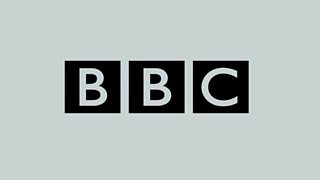Delivering a vibrant future for UK radio
Matthew Postgate
Chief Technology and Product Officer

Last week Tony Hall talked about an ’agile, creative, bold’ future for the BBC, including its online services, ‘made available and relevant to everyone’. Today the radio industry meets in central London for the Drive to Digital conference looking at the future of radio.
I also spoke to the Digital TV Group (DTG) earlier this year, outlining how the BBC could take a lead in creating an IP future that works for all.
In that speech I noted that a move to an internet future wouldn’t happen overnight, and nor would we want it to. The BBC remains committed to the broadcast technologies that have been central to our direct, unmediated and intimate relationships with audiences.
While IP technologies will be increasingly important in all sectors, some industries and audiences will move faster than others. Our challenge is to manage this transitional period as effectively as possible.
Radio was the BBC’s first platform for communicating with audiences, and although the world has changed dramatically since our first broadcast in 1922, the ability of live radio to inform, educate and entertain has remained constant. Today 89% of the UK population listen to live radio weekly, whether that is to the BBC or to the UK’s thriving commercial radio sector. What’s more, 91% of that listening is still delivered via broadcast technologies.
We recently reached a milestone in radio consumption: in 2018 so far, 50% of radio listening has been delivered by digital for the first time, inclusive of both IP and DAB. This was one of the criteria set by the government for reviewing whether there should be a digital radio switchover.
It is right that we take this moment to reflect on the future for radio, the success of DAB - which now makes up 36% of the UK’s radio listening - and how we best guarantee the next generation of radio listeners.
DAB, analogue and IP radio all provide significant national value. The BBC believes that in today’s environment, the best way to deliver universality, value for money and to appeal to radio listeners of the future is not to set a date for analogue closure, but to maintain a mixed economy of these valuable platforms.
In doing this we should also explore how we can accelerate digital take up, while protecting the radio industry and audiences from the damaging effects of switching off analogue radio.
First, we need to build up digital radio listening amongst younger audiences who are rapidly adopting IP streaming services such as Spotify, Apple Music and Amazon Music. In the last year alone listening to on-demand music services amongst 15-24 year olds has increased by 50%.
But many younger audiences rely on FM services, so removing them would risk losing more young audiences to non-UK streaming services.
Second, we must see the growth in IP listening not just a competitive threat but as a huge opportunity for the UK radio sector to innovate further and faster, offering greater discovery, services and functionality to audiences. The BBC will invest in IP technology and services to support the future of a vibrant radio industry.
The BBC has always been an investor, supporter and leader in DAB radio. We’ve been integral to founding, funding and implementing the rollout of DAB over the last twenty years and have invested millions in DAB distribution.
We’ve also launched compelling new services such as 6Music, the UK’s largest digital-only radio station, to expand audience choice.
At the same time the commercial sector has launched their own digital-only services and seen record revenues. The value that DAB provides to the industry, audiences, and the BBC is clear which is why we have commitments to fund DAB that extend beyond the current charter period.
Analogue radio, strongly driven by FM, remains the UK’s most popular, universal and reliable method of listening to radio. It accounts for 50% of time spent listening to radio in the UK, and is used by 70% of the population.
For 30% of all radio audiences it is the only way in which they consume radio today. In the event of a switchover many audiences would make the transition to digital, but we know a substantial proportion would not. We have seen radio consumption in Norway drop by over 10% in 2018 after last year’s analogue switch off, and it has yet to significantly recover.
Switching off FM radio in the UK when it is still the most popular form of listening, and the most resilient of all our communication networks, would raise similar risks.
At the beginning of this year we closed AM services where we saw declining relevance and usage, and may well continue to do this across our AM estate over the next few years. This exit from AM services, which provide significantly less audience benefit than FM, is a natural market evolution, with the same strategies being undertaken by commercial radio players.
The BBC supports a digital radio future and, in line with its Charter Agreement obligations, the transition to get there. But it must be the right digital future that does not remove platforms that provide significant audience, industry and national value.
We believe that the radio industry should focus on providing compelling digital radio services and devices that convince audiences increasingly to adopt digital radio. To this end the BBC is looking to work with industry partners to launch new digital services - such as BBC Sounds, which you’ll hear more about soon - to help secure the next generation of radio listeners.
We passionately believe in a universally accessible digital radio future. We want one that strengthens radio, not weakens it. We want one that draws younger audiences to radio, not one which pushes them away.
We look forward to working with Government, industry, and audiences, to ensure that together we deliver a vibrant future for UK radio.
